Conflict, climate, hunger and resilience in the spotlight at Lake Chad Basin conference
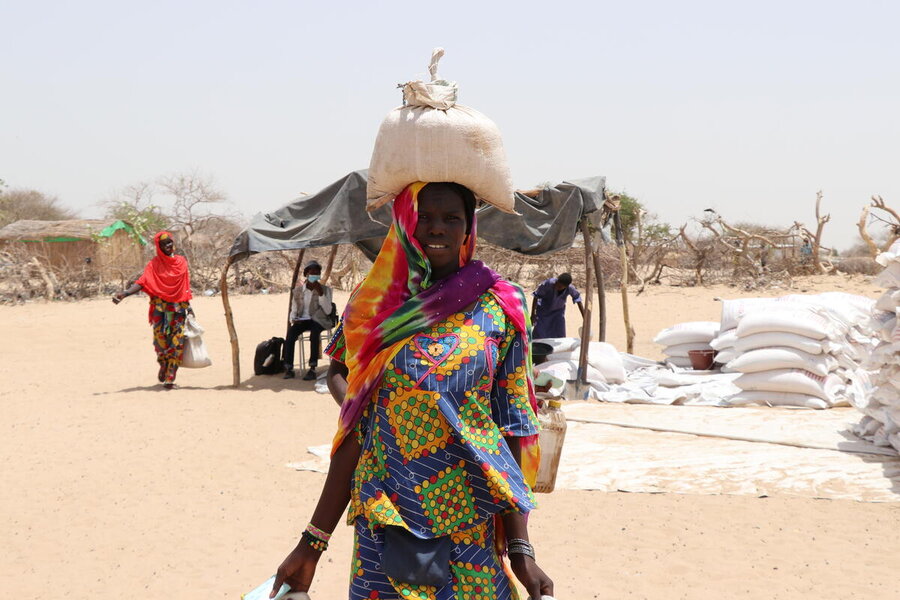
Refugee Al Roumat Ali fled armed violence in her native Niger nearly a decade ago. Today, she lives on the Chadian shores of Lake Chad, having depended entirely on World Food Programme (WFP) and other humanitarian assistance to survive.
Unrest in their native Chad also uprooted Ali Nguila and her seven children. At a Lake Chad settlement for internally displaced people, they live hand-to-mouth on WFP and other support, along with their meagre earnings from selling charcoal.
Hundreds of kilometers south in Cameroon, farmer Brahim Mahamat is feeling the backlash of drought followed by heavy rains that have devastated swathes of West and Central Africa this year. With his harvest destroyed, he now wonders how he will feed his large family, moving forward.
Al Roumat and Nguila Ali- who are not related - and farmer Mahamat offer three faces of the multi-layered crisis gripping the region around Lake Chad, a once-vast fresh water lake sitting at the crossroads of Chad, Niger, Nigeria and Cameroon. Climate change and conflict have destroyed fishing and farming livelihoods communities long depended on, and displaced millions. The situation will only get worse, WFP and other humanitarian experts say, without stronger, most sustainable action and funds.
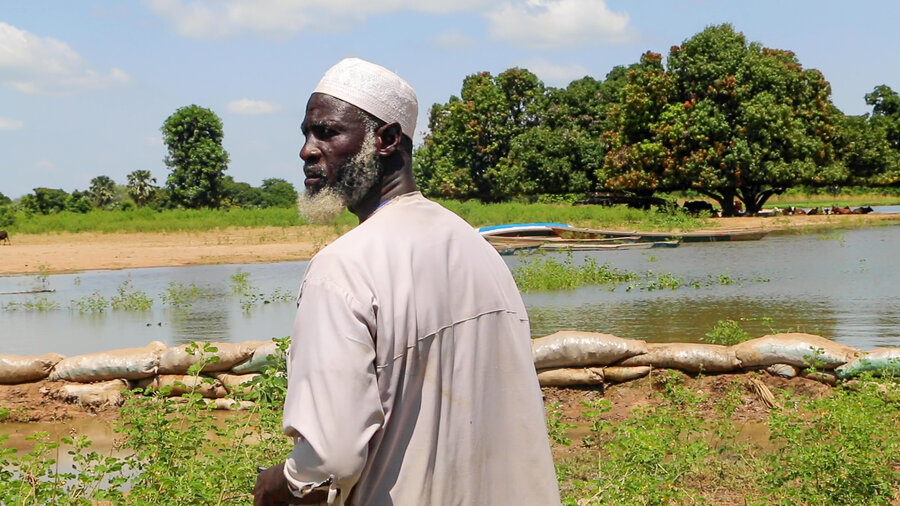
These messages will resonate Saturday (26 October) at a donors’ meeting in Saudi Arabia aimed to mobilize funds and humanitarian action for refugees and displaced people across the Lake Chad and Sahel regions.
“This pledging conference couldn't come at a more crucial time,“ says Margot van der Velden, WFP’s Regional Director for Western Africa. “The Sahel and Lake Chad Basin regions are grappling with an unprecedented food security and nutrition crisis that jeopardizes their vast potential. We must act swiftly to prevent conflict, climate change impacts and economic challenges from disrupting humanitarian efforts, and from increasing safety risks.”
Working with partners across the region, WFP is providing part of the solution — through food, cash and nutrition assistance to displaced and other vulnerable people; school meals programmes that boost education and nurture young minds; and by working with farmers and other community members to build resilience to shocks like conflict and extreme weather, which have only worsened with climate change.

In the first six months of this year, WFP supported national governments in reaching more than 10 million people with a mix of food and other assistance across the Lake Chad and Sahel areas. In some countries, this support represents more than half the aid local governments have earmarked for vulnerable populations during the lean season between harvests.
“Providing immediate relief to crisis-affected communities is crucial, but we must also focus on long-term solutions,” van der Velden says. “Investing in resilience-building programmes can offer durable solutions and significant returns. Our analysis shows that every dollar invested in resilience over 10 years yields approximately US$5 in benefits and savings.”
Climate and conflict
Historically one of the world’s largest fresh water bodies, Lake Chad has lost 90 percent of its surface area since the 1960s, largely due to human-induced climate change, experts say. Along with recurrent droughts, the region has more recently been hit by deadly floods, which scientists say were similarly worsened by the changing climate.
The fallout of these weather extremes, along with rising armed conflict and economic and other shocks, have hit surrounding populations hard, deepening hunger and malnutrition, and forcing many to flee their homes in search of safer, more promising places.
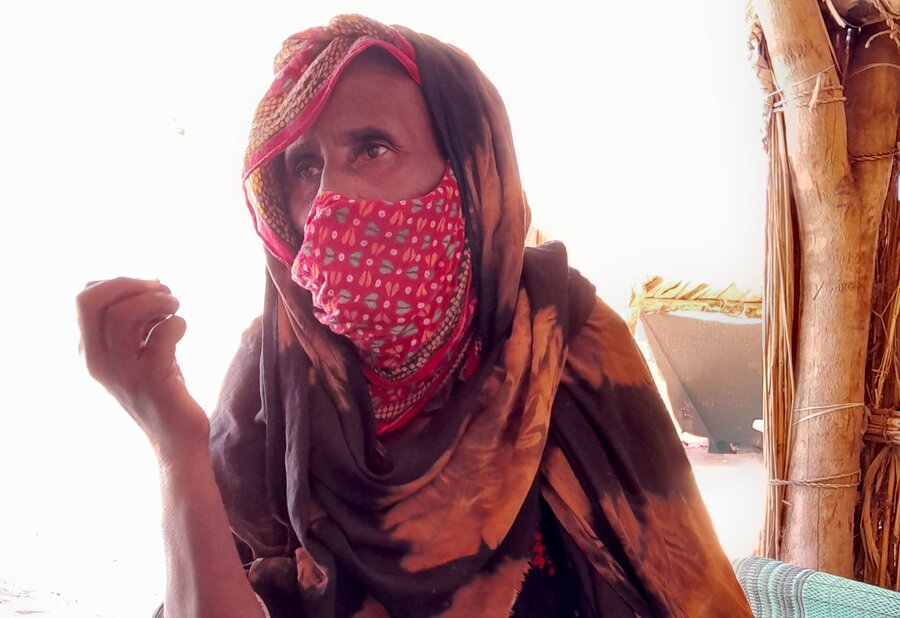
That’s the case of Nigerien refugee Al Roumat Ali, a mother of eight, who says she cannot farm the harsh land where she lives. “The land around us here is not fit for growing onion and maize that are my preferred crops,” she says. “We need access to more fertile land for farming activities.”
Nguila Ali and her seven children are also barely scraping by. Nine years ago, the family fled armed attacks in their village of Mandiram, in the Lake Chad region, finding refuge at Kousseri site for displaced people near the lake.
“It's very difficult to find work here,” she says. “We go into the bush in search of firewood, then we transform the wood into charcoal to sell.”
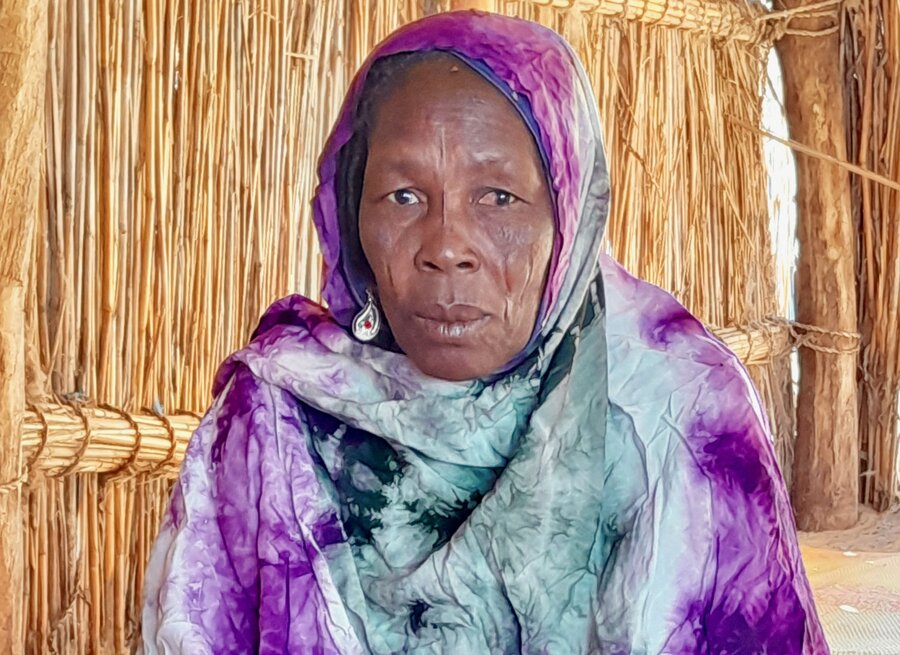
But soaring inflation has shrunk the amount of goods she can buy with earnings from her sales. Frequent droughts and lack of reliable water sources make it impossible to grow vegetables, Nguila Ali says. Armed groups in the area have also attacked and killed youngsters trying to fish as a way to survive, preventing refugees and displaced people from returning home.
As with Al Roumat Ali, WFP initially provided Nguila Ali with food and cash assistance. Now they need something more sustainable. “We need safe and reliable opportunities for our youth to survive and thrive,” Ali says.
Resilience pays
In northern Cameroon, farmer Mahamat faces a different challenge: unpredictable weather. “This year we sowed and then the rain stopped, and the millet could not grow well,” says the farmer, who lives in Maham village, in Cameroon’s Far North region, near the Chadian border.
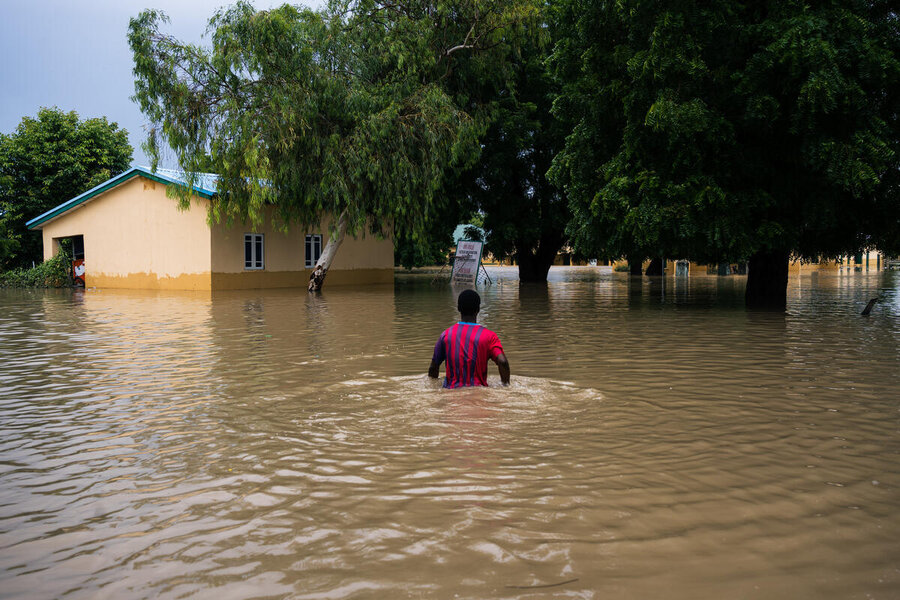
Then came torrential rains, which wiped out his harvest. “The situation is very difficult,” says Mahamat.
WFP is currently providing emergency food assistance targeting 142,000 flood-affected people in northern Cameroon. Other WFP initiatives across the Sahel offer its residents more durable futures. They include restoring degraded lands, supporting education through school feeding, and assisting communities to take on new livelihood activities - from farming and cultivating market gardens, to starting small businesses - to boost their incomes.
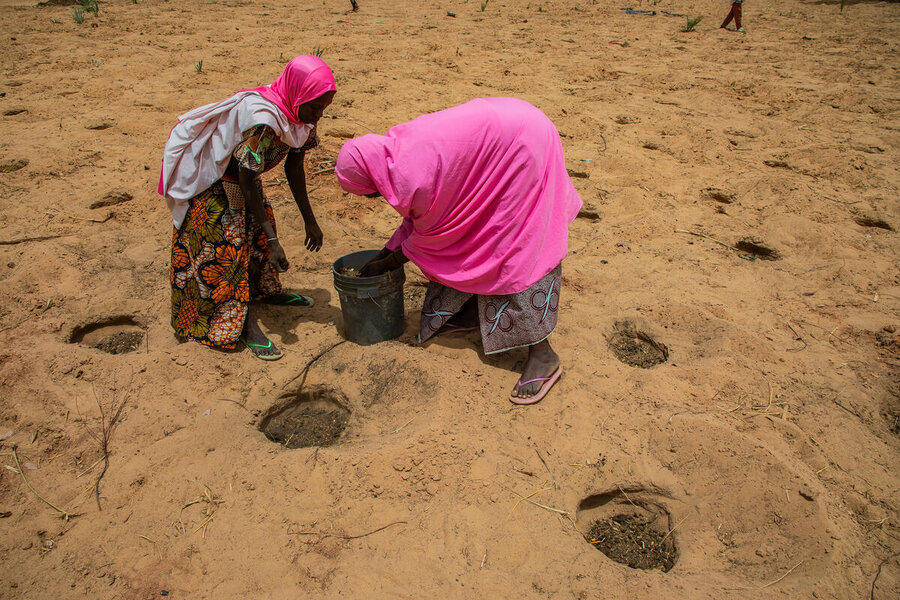
In Niger, expert findings show these initiatives are paying off. Between 2022-24, more than half-a-million people supported by WFP's resilience programme in the country no longer required humanitarian assistance - saving the government US$30 million yearly that would otherwise be spent on emergency support during the difficult lean season.
“These kinds of resilience initiatives, along with others - like offering families social protection schemes to respond to shocks - need to be prioritized,” says WFP’s van der Velden. “A humanitarian response alone is financially unsustainable, and does not address the root causes of hunger and malnutrition.”
